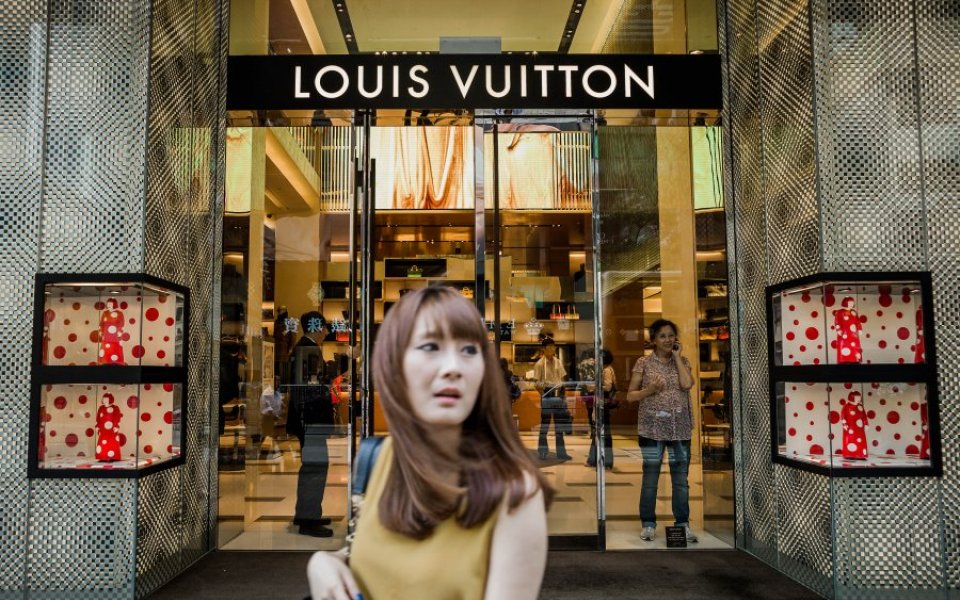Prestigious brands suffer falling sales in China – but luxury hasn’t lost its lustre just yet

Fom Hermes handbags and Tiffany jewellery, to Moet champagne and Hennessy cognac, luxury companies have had a storming run on the stock markets since the turn of the millennium.
Alongside high-end brands with very exclusive products, the luxury sector also includes names considered commonplace in the West, such as Nike, L’Oreal and Swatch – which all sell aspirational, premium priced products in most countries around the world.
The power of these brands cannot be under-estimated. Shares in Nike, for example, have risen an astonishing 40,500 per cent since 1980.
The product itself is not too important. What matters is how desirable the brand is, an ephemeral concept that means some brands command a loyal following no matter the economic outlook. The status associated with owning luxury brands means wealthy people maintain their spending on these “little luxuries” throughout downturns – although interestingly sales are knocked by natural disasters, perhaps because they make people question what’s important in life.
The biggest driver for luxury sales now are the newly wealthy classes around the world who are seeking out Western status symbols.
“Luxury goods tend to be highly emotional purchases,” says Scilla Huang Sun, manager of the JB Luxury Brands fund. “Wealthy people tend to do better during economic downturns. They are more resilient.”
CHINA CONTAGION
That said, investor enthusiasm towards luxury companies has soured a little in the last two years. In 2013, China announced a crackdown on bribery. Gift giving had been a huge part of this, and investors shied off companies such as LVMH, which owns Hennessy cognac.
This summer, hubbub over China’s slowing economy caused the price of everything from commodities to pharmaceuticals – and even high-end London property – to fall.
Luxury goods were also affected. Burberry’s shares have fallen 25 per cent in the past six months after it announced sales have slowed in China and Hong Kong – and critics say other luxury firms will follow in its footsteps.
“Burberry underlines just how integral China is to many big-name luxury companies,” says Charles Younes from FE Research.
“This is not the first company to point to a Chinese slowdown as cause for poor sales performance – LVMH and Gucci’s owner Kering recently did the same – and it certainly will not be the last.”
FUSS ABOUT NOTHING
But some experts believe worries over luxury goods are misplaced, and that the sector will weather this storm as it did others. “There are 300m people in China who are considered middle class. That’s the whole population of Europe – and that number is growing,” says Nathan Sweeney of Architas.
Around 30 per cent of luxury sales are made by people on holiday, taking advantage of duty free shopping or favourable exchange rates to treat themselves. These are the world’s most affluent consumers, who have a degree of immunity from economic downturns – and this is particularly important when it comes to the China issue. “They are not consuming as many luxury goods in China but we are seeing a growing market for luxury goods in the UK,” Sweeney says.
The UK is expected to become the biggest market for luxury goods in Europe in the next few years, reflecting the number of affluent visitors attracted from the US, Middle East and Asia.
FASHIONS CHANGE
One crucial point to remember when looking at headlines around the demise of luxury brands is that fashions come and go. Burberry, for example, has been popular for years in China. The question for the company may be whether its trademark chequered designs are now becoming unfashionable, Sweeney says.
Specialist funds allow investors to spread the risk, as different luxury brands go in and out of favour. Wealth manager Tom Becket of Psigma Investment Management has some of his clients’ money invested in luxury goods.
He chose the JB Luxury Brands fund. Although returns from the fund haven’t been great lately, he is being patient and is willing to wait until things start to settle and people become less concerned about China.
“It is not all doom and gloom for luxury and there could be money to be made,” he says.
THREE OF THE BEST: LUXURY STOCKS FOR YOUR PORTFOLIO
HERMES INTERNATIONAL
Purveyors of leather, apparel, perfume and its sought-after handbags, Hermes’s share price has risen 656 per cent in the last 15 years.
“Hermes has suffered much less than other luxury brands in terms of growth momentum,” says Scilla Huang Sun of JB Luxury Brands. “It has said that it will have 8 per cent organic growth, which is a nice growth rate.” Analysts at Barclays include shares in this Paris-based company among their top 40 quality European stocks.
NIKE
Wearing sports clothes all day is a growing trend among the young, a fashion that even has its own term – “athleisure”, says Huang Sun.
Nike continues to have strong sales and profits, as it stands out as an “exceptional brand”, says Nicolas Ziegelasch of Killik & Co.
“Nike plays to the theme of healthier living, it has an exceptional brand and ability to innovate,” he says. “We remain buyers of the stock as a long-term investment.”
RICHEMONT
Sales at high end jewellers remain strong – possibly because luxury purchases are often emotional and linked with special occasions. Sales of expensive watches have not done so well, perhaps because timepieces have diminished in value among younger consumers who tend to use their mobile phones to check the time.
Richemont is a giant in the luxury world as it owns a stable of high-end brands. Jeweller Van Cleef is particularly popular and has good prospects for growth. “Richemont will continue to do well as it owns brands that are riding the wave of China,” Huang Sun explains. “The branded jewellers can take a lot more market share.”